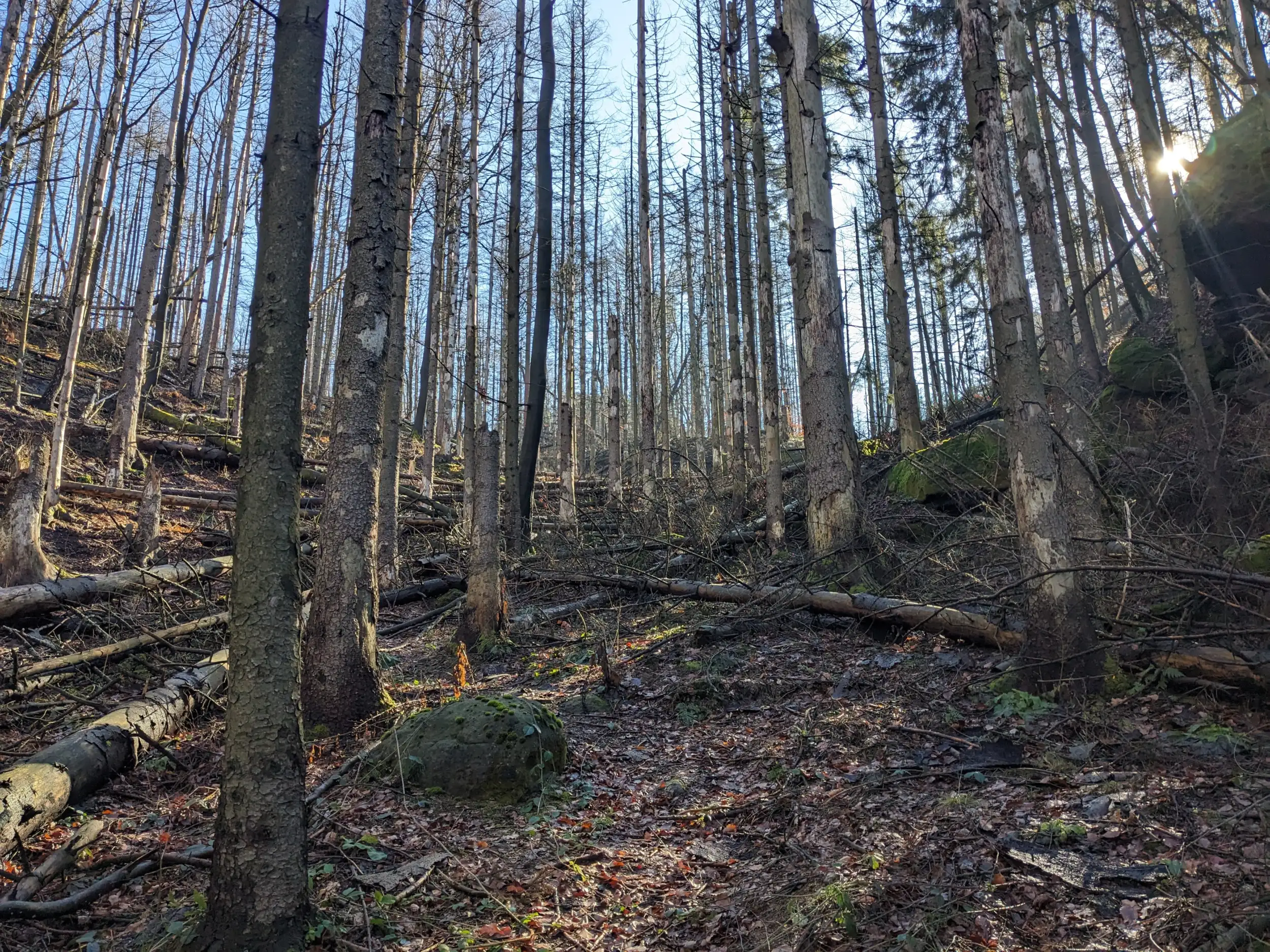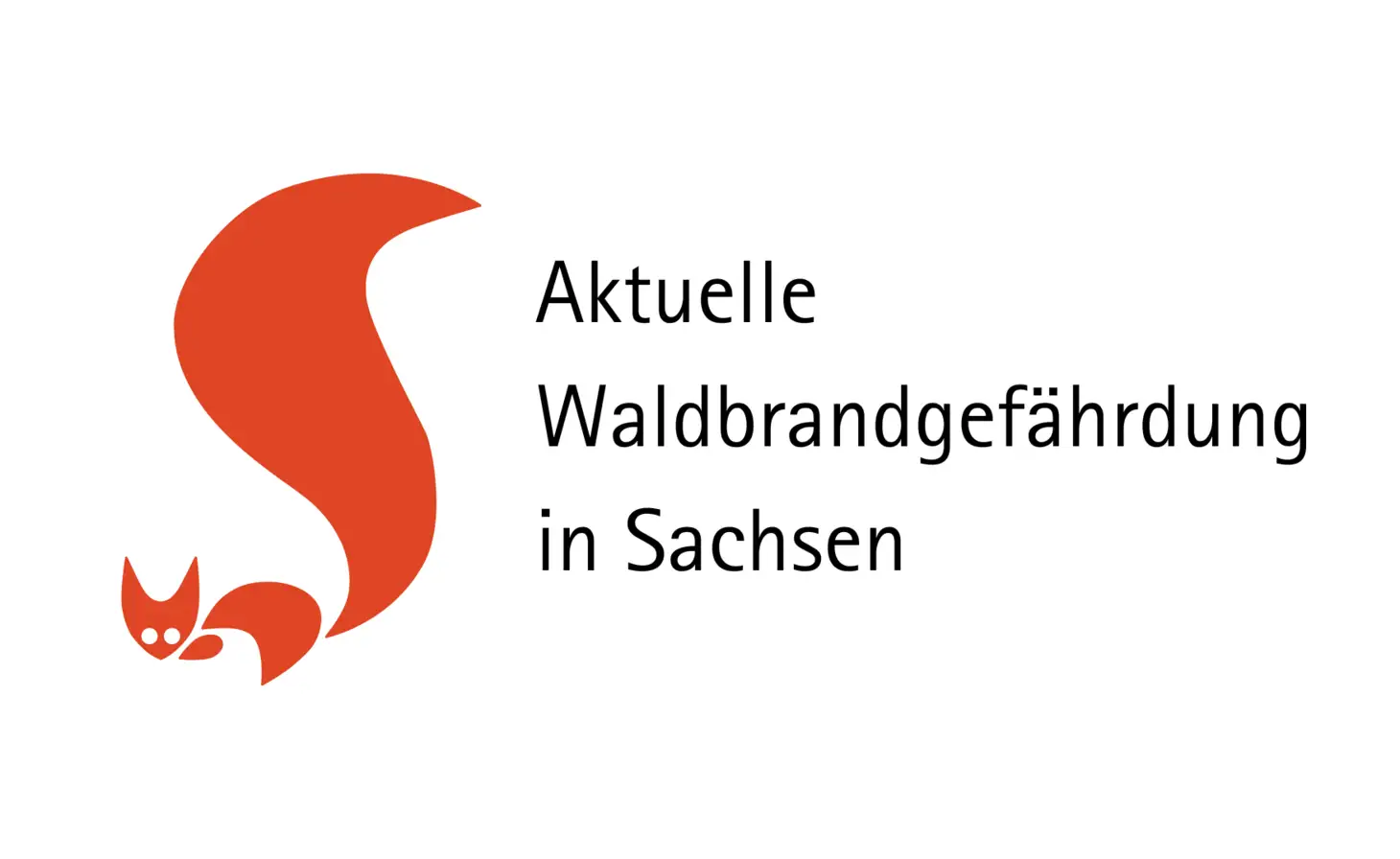which protection area you're currently in.

Appropriate behaviour
The majority of the national park region is protected, and respectful behaviour in nature is crucial to ensure both nature conservation and the experience of nature. Certain rules must be observed both in the national park and in the neighbouring landscape conservation area in order to preserve the valuable cultural and natural landscape.
These rules apply in the national park
Access to the national park is only permitted on the existing paths. Paths may not be left. In the core zone, only marked or signposted paths or paths may be used.
Always keep your dog on a leash. This protects local wildlife as well as your dog.
Take your trash back to the next recycling bin, including tissues.
Sleeping or camping in the national park is prohibited, this also includes sleeping in your caravan or car. The only exception is Boofen (bivouac under a rock overhang without a tent or tarp), which is only permitted from 16 June to 31 January, only for climbing and only in the official Boofen sites.
You may only climb on official climbing summits. The Saxon climbing rules apply. Link to official climbing rules in German (external website)
The use of drones or other aircraft is prohibited throughout the national park.
Smoking and any type of fire are prohibited. Campfires are only permitted at the designated fireplaces.
It is forbidden for people and animals to enter the water or swim in the national park.
Causing noise, for example by playing loud music, is prohibited.
Collecting or damaging plants is prohibited. Careful picking of small amounts of mushrooms and berries for personal use is permitted as long as you do not leave the paths.
Stones, minerals and fossils may not be taken or damaged. Soil, rocks and water may not be contaminated or altered.
Cutting down or damaging trees (including sawing off branches and twigs) is prohibited. Anyone wishing to use the official fireplaces must bring their own wood.
Animals may not be fed, disturbed or injured.
Cycling is only permitted on the official cycling routes ("Radroute im Nationalpark" on signposts). Please be aware that these are also hiking trails and be respectful of hikers.
These rules apply in the landscape protection area
You may only climb on official climbing summits. The Saxon climbing rules apply. Please use the designated climbing access paths to protect nature. Link to official climbing rules in German (external website)
Camping with a tent is only permitted on designated campsites.
Cycling is permitted on suitable paths and roads. Cycling is not permitted on sports and nature trails or footpaths.
Smoking is prohibited in every forest.
The take-off and landing of drones and other aircraft is also prohibited in the landscape protection area.
Motorised vehicles are not permitted on forest paths.
To prevent forest fires, the following applies everywhere in the forest and at a distance of less than 100 metres from the forest: No open fires! This also applies to barbecues, campfires and sky lanterns or candles.
Prevention of forest fires
Almost all forest fires are caused by people, whether through inadequately secured fireplaces, poorly extinguished fires or discarded cigarettes. It is therefore of the utmost importance to observe the above rules and to be particularly careful.
Always pay attention to the current forest fire danger level (link to German website) and adjust your behaviour accordingly. (Clicking on the image "Aktuelle Waldbrandgefährdung in Sachsen" links to the same website.)
Passing areas with dead trees

"Let nature be nature:" In the national park, the natural cycle of growth and decay of biotic communities is protected. Dead trees remain part of this cycle. Falling trees and branches are therefore typical dangers in the forest.
As a result of the bark beetle infestation in recent years, a large proportion of the spruce trees in the national park have died. The dangers posed by standing deadwood are not always immediately recognisable. We have therefore compiled some information to help you assess the risks.
